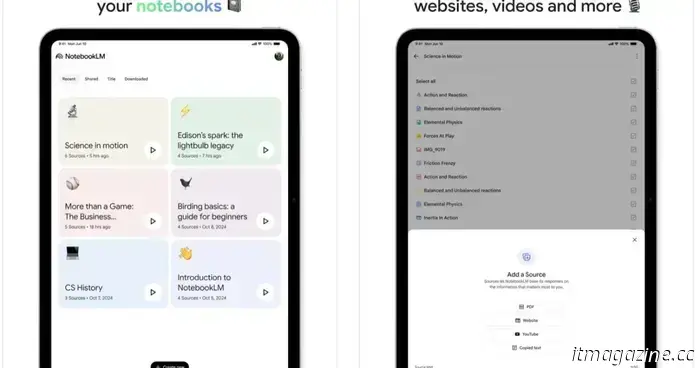
App subscriptions could become more affordable as a U.S. court compels Apple to modify its App Store payment regulations.
Apple has updated its app store guidelines for developers, permitting the inclusion of external links or payment systems for app purchases and subscriptions without incurring any commission. This adjustment follows a recent ruling by a California District Court that determined Apple did not adhere to the 2021 verdict in the significant Apple vs. Epic Games antitrust case, which found the company in violation of California's antitrust laws and mandated the facilitation of external payments within apps.
With this modification, apps available on the iOS and macOS App Stores will no longer be “prohibited from incorporating buttons, external links, or other calls to action” for payments made outside the app. While these changes were initially put in place last year, Apple required developers to obtain a special “entitlement” to allow payments via external sources. This would enable developers to direct users to click a button in the app that takes them to an external site to finalize transactions for purchases or subscriptions.
Nonetheless, Apple previously charged a 27% commission, commonly known as the “Apple Tax,” on sales made through external links—compared to the 30% developers with over $1 million in annual revenue would have to pay on in-app payments. Apple has long defended these fees by claiming that its secure technologies, including Store Kit, prevent fraudulent transactions and ensure secure processing with adequate tracking.
Following the latest ruling, Apple has agreed to eliminate the 27% commission, as indicated in its revised app store guidelines for developers. However, this ruling currently applies only to U.S. developers, while those in other regions may still face commission fees. For example, Apple's regulations in the EU still state that developers could incur at least a 10% or 17% commission—depending on their revenue—on sales, regardless of the payment system.
To avoid these commissions, many developers, such as Spotify and Netflix, had disabled in-app payment links and instructed consumers to pay for or renew subscriptions via their websites. This is anticipated to change with the recent ruling, allowing developers to keep 100% of the earnings.
The burden of these commission costs also fell on consumers, leading developers to raise subscription prices accordingly. For instance, the monthly fee for X’s premium tier varies based on whether the payment is made through the app or the website. With the recent ruling, there is hope that prices will decrease as developers face lower costs.
For those developers not interested in creating their own payment pages, Epic Games has proposed an easier alternative as part of its ongoing resistance against Apple. Developers listing their apps on the Epic Games Store will pay 0% commission on the first $1,000,000 in annual revenue. However, such benefits may primarily be relevant to consumers within the European Union, where Apple has been compelled to provide alternatives to the App Store due to another antitrust decision.
Additionally, the court has referred Apple and its finance executive to the United States Attorney for “investigation of criminal contempt,” which may have prompted these adjustments in regulations. Apple plans to comply with the ruling while also considering an appeal, according to Reuters; however, its chances might be slim after the U.S. Supreme Court dismissed a prior appeal related to this case, seeking to overturn the 2021 judgment.

Other articles
.jpg) Three fantastic free movies to watch this weekend (May 2-4).
Watch these free films from May 2-4: a thriller by David Fincher, a comedy starring Jim Carrey, and a drama featuring Bradley Cooper.
Three fantastic free movies to watch this weekend (May 2-4).
Watch these free films from May 2-4: a thriller by David Fincher, a comedy starring Jim Carrey, and a drama featuring Bradley Cooper.
 Microsoft accounts will encourage you to move away from passwords and adopt a passkey instead.
Passkeys have become the standard for Microsoft accounts. Goodbye, passwords!
Microsoft accounts will encourage you to move away from passwords and adopt a passkey instead.
Passkeys have become the standard for Microsoft accounts. Goodbye, passwords!
 The NotebookLM app is now available for pre-order on the App Store.
The new NotebookLM app is available on the App Store and is anticipated to be released on May 20, coinciding with the first day of I/O 2025.
The NotebookLM app is now available for pre-order on the App Store.
The new NotebookLM app is available on the App Store and is anticipated to be released on May 20, coinciding with the first day of I/O 2025.
.jpg) Three lesser-known Netflix series you should check out this weekend (May 2-4).
These three Netflix series are definitely worth your time, even if they aren't being suggested to you.
Three lesser-known Netflix series you should check out this weekend (May 2-4).
These three Netflix series are definitely worth your time, even if they aren't being suggested to you.
 Lyft Silver is the transportation service that our elderly family members deserve.
Lyft Silver is an updated service that streamlines the app, offers live human assistance, and establishes a comfort standard for all vehicles to cater to older passengers.
Lyft Silver is the transportation service that our elderly family members deserve.
Lyft Silver is an updated service that streamlines the app, offers live human assistance, and establishes a comfort standard for all vehicles to cater to older passengers.
 You can now engage with Google's AI Mode in the search results.
Google has started introducing its AI Mode to Search users in the United States.
You can now engage with Google's AI Mode in the search results.
Google has started introducing its AI Mode to Search users in the United States.
App subscriptions could become more affordable as a U.S. court compels Apple to modify its App Store payment regulations.
Apple has revised its app store payment policies following scrutiny from a U.S. federal District Court.
